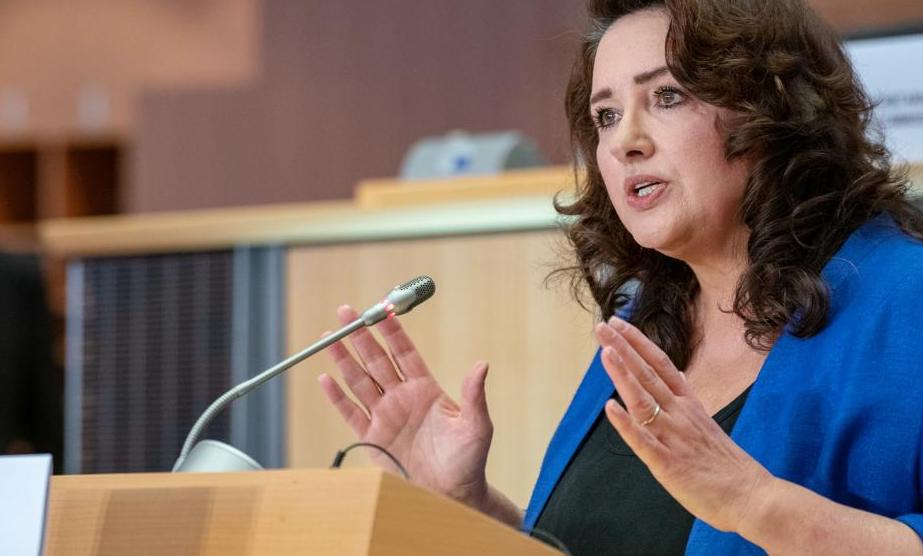
Questions over the ‘language of equality’ keep coming up, at least for the Commissioner for Equality Helena Dalli. On Wednesday, December 15th, a debate was held in a plenary session at the request of the European People’s Party on the famous “European Commission Guidelines on inclusive language.”
Helena Dalli’s proposals have raised much criticism from both MEPs and outside parties, although they’ve garnered favor with some European activists, such as the French Secretary of State for European Affairs Clément Beaune, who had characterized Dalli’s text as “stupid.” Pope Francis had vigorously criticized the text of Helena Dalli, which recommended, among other things, banning the words “ladies” and “gentlemen,” promoting non-Christian first names in documents requiring examples of people living in the European Union, and replacing the word “Christmas” with “holidays.”
Helena Dalli tried to defend her recommendations, explaining that they were non-binding suggestions, In the end, Dallie withdrew her proposals, claiming the document needed to be reworked.
Dalli didn’t attend the debate, which was led by another commissioner, Margaritis Schinas, Commissioner for the European way of life. Margaritis Schinas had been critical of Dalli’s proposals.
Many MEPs did not hesitate to make jokes during their speeches, wishing their colleagues a “Merry Christmas.” Former Parliament President Antonio Tajani recalled the original meaning of the European flag—the crown of stars of the Virgin Mary and the blue of her mantle, and rightly explained that the claimed motive of integration should not be achieved by hurting and despising the identity of millions of European citizens. The French Deputy François-Xavier Bellamy reminded the audience of the nonsense in erasing the word Christmas, since apart from its religious associations, it functions as a term that marks the event from which our era begins, and from which we count the years.
German MP Manfred Weber (Christian Social Union) welcomed the withdrawal of the instructions, and criticized the tendency to confine European symbols to the private sphere. Several MEPs from the former communist bloc drew parallels between Dalli’s instructions and the totalitarian attempts to control language that had plagued their countries for decades.
These heated debates prove that the issue is not only one of inclusiveness, but is also indicative of a lack of peaceful consensus on the question of the European Union’s Christian roots.
